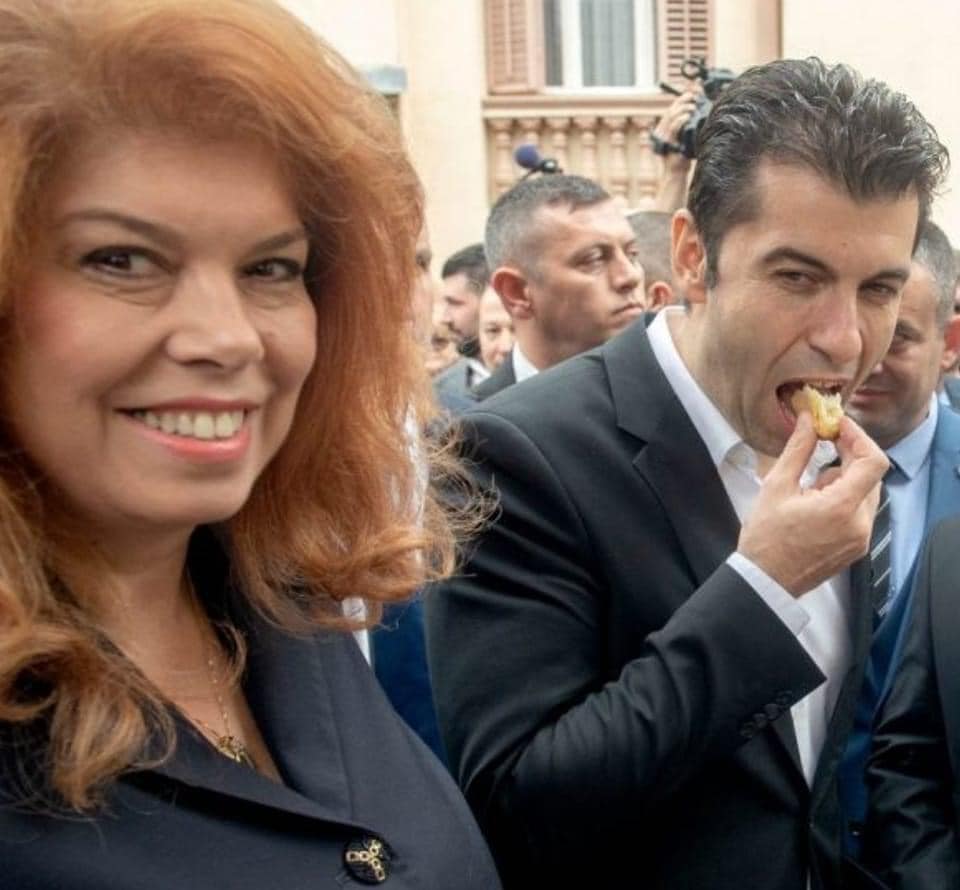The oldest Serbian newspaper “Politika” described the opening of the so-called cultural center “Vanco Mihajlov” in Bitola as “fascist march”. The text is entitled: “Bulgarian subversive activity of fascist collaborators angered Macedonians.”
Even 77 years after the victory over fascism in Macedonia, this evil of the past has become a trending topic. The “good neighborly” state sent a delegation to Macedonia, consisting of the Prime Minister of Bulgaria, Deputy Prime Minister, Minister of Foreign Affairs, former Minister of Foreign Affairs and former Minister of Defense, to once again humiliate the Macedonian people by opening the Bulgarian Cultural Center in Bitola called “Vanco Mihalov”. He was a convinced collaborator of Hitler, Mussolini, Pavelic, the Bulgarian Tsar Boris III…
In those dark times, the identity of the Macedonian people was not only disputed, but also trampled by the fascist boot. Does the name of the cultural center actually hide the message “This is Bulgaria”? In a country where Hitler’s collaborators, as part of the occupying Bulgarian army and police, imprisoned all Jews from Stip, Skopje, Kicevo and sent them to the Treblinka camp. 7,144 of them were killed. At the same time, 30,000 Serbs were taken with livestock wagons from Skopje to the Wehrmacht occupation zone, and a smaller number to camps in Germany and Bulgaria. These data are in the Holocaust Memorial Center of the Jews from Macedonia in Skopje.
This Bulgarian act, which rehabilitated the Nazi and fascist ideology, was no less promoted by Kiril Petkov, the Bulgarian Prime Minister. And that was not all. Knockout is his statement that it is a “bridge between the two countries” at a time when Bulgarian official policy believes that Macedonia can enter the EU only as a country inhabited by people of Bulgarian descent and that Bulgarians must be part of Macedonia’s Constitution. Of course, apart from the firm position that more than 3,500 official Bulgarians live in Macedonia and that their right to self-determination has been taken away, Petkov and his associates believe that there are no Macedonians in Bulgaria. Although the European Court of Human Rights in Strasbourg ruled that the rights of Macedonians in Bulgaria have been taken away and the state must allow them to live as Macedonians.
Petkov is a Harvard graduate with a pro-Western orientation, unlike Rumen Radev – the president of Bulgaria, who is perceived as pro-Russian. The clash of two ideologies coming from Sofia showed a similar problem in Ukraine, where neo-Nazis and anti-fascists clashed.
The Macedonian state leadership, starting with the President, the Prime Minister, the Ministers of Foreign Affairs and Interior, said that it was a direct provocation, and Dimitar Kovacevski tried to summarize the problem, emphasizing: “The anti-fascist orientation is part of our national identity.” But many questions remain open.
How does the Bulgarian delegation “march” to Macedonia? Could not the Ministry of Justice have come up with the position that this Bulgarian center cannot be registered under this name? Is it possible that no one from the executive and judicial authorities of Macedonia knew with what intention Petkov enters Macedonia and that no one interfered in his intentions? If it is true that they did not know about the Bulgarian plan, then why did not the hosts attend the opening and support Petkov’s proposed “bridge of friendship”?
But the ghost of fascism reappeared under the Macedonian sky. The “clear sun” has set, reads the text of “Politika”.




Comments are closed for this post.